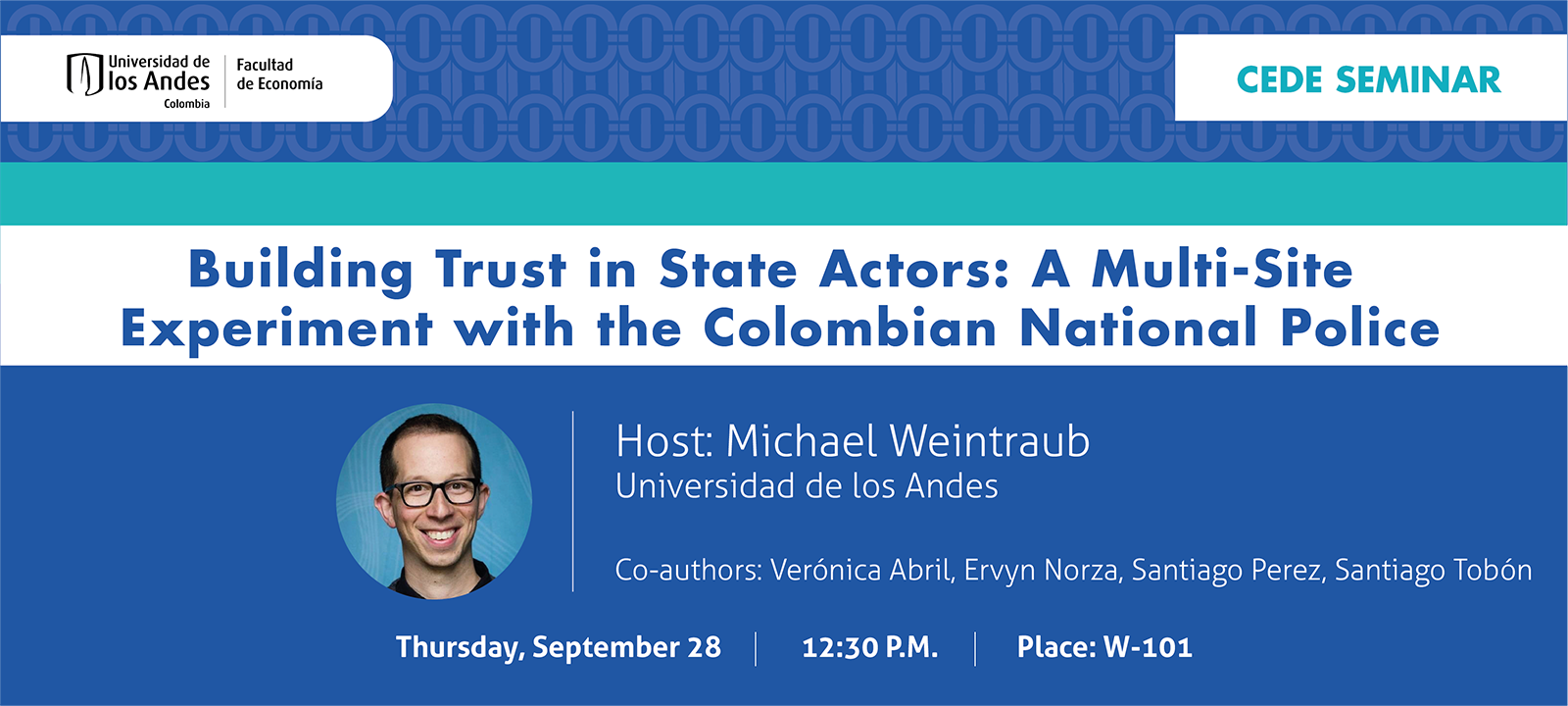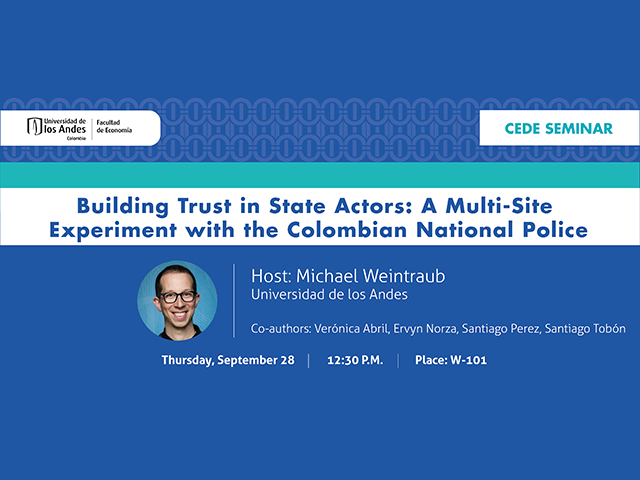CEDE Seminar - Michael Wintraub

Protest violence can sap social movements of their legitimacy, deepen political polarization, and help regimes justify state repression. While recent research has focused on how successful protests are in achieving campaign goals, we know little about the relationship between protests and crime. We develop a theoretical framework to explain the relationship between protests and crime, theorizing how protests affect the supply of potential victims of crime, witnesses that could report crimes or exercise informal social control, police assets that could deter crime, and professional criminals interested in benefiting from the disorder that protests typically involve. Harnessing geo-located protest data from confidential government sources in Colombia; geo-located emergency calls for service made by citizens requesting assistance for crime victimization; and geo-located administrative crime data from the Colombian National Police, we use a staggered difference-in-differences design at the street block level to test treatment effects on crime. We find that massive protests in Bogotá in 2021 increased property crimes on street segments that experienced them, especially for robbery (an increase of 5.1% over the control group mean), but had no effect on violent crimes such as homicides, armed robbery, and sexual violence. Because property crime increases persist for up to 8 months---even once protests end---we conclude protesters themselves likely are not responsible for these increases. We discuss the implications of our findings for social movements, policing, and democratic legitimacy.

